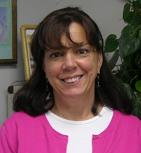New York's Autism "Act Early" Campaign is Underway
January 25, 2010
![]() http://www.omr.state.ny.us/autism/hp_autism_news_actearly.jsp
http://www.omr.state.ny.us/autism/hp_autism_news_actearly.jsp

|
In 2009, New York's Leadership Education in Neurodevelopmental and Related Disabilities (LEND) Programs and the New York State University Centers for Excellence in Developmental Disabilities (NYS UCEDD) held an Autism Summit, funded by the national Centers for Disease Control and Prevention (CDC). This meeting brought together autism experts and policy makers from across New York, New Jersey, Puerto Rico and the Virgin Islands to formulate a comprehensive plan for preparing to meet the needs of individuals with autism. Summit participants identified a need for greater awareness of the very earliest signs of autism spectrum disorders (ASDs).
"We know that the earlier a child is identified and begins treatment, the better that child's chances of achieving," said "Arnold Birenbaum, Associate Director of the Rose F. Kennedy Center for Excellence in Developmental Disabilities and co-coordinator of the public awareness campaign "If months and years go by for that child and the disability is not identified, it means months and years in which treatment could have been happening and making a difference in their present life and their future."
According to the CDC, all children should be screened for ASDs during regular well-child visits at 18 and 24 months. Closer monitoring may be necessary if a child has a sibling or a relative with an ASD or had preterm birth or low birth weight. Yet, many children in New York and other places are not diagnosed with ASD until well past their third birthday. Impressing upon parents, pre-school teachers, child care workers and doctors the importance of acting on early signs of developmental delay can help get more children the therapies they need when they can be most effective.
That's the mission of the "Act Early" Public Awareness campaign. The campaign will intentionally target those people with the greatest contact with young children and bring simple and clear instructions on what to look for and what to do when concerns exist.
"We'll make use of many resources, including those provided by the national Centers for Disease Control and Prevention packaged as "Learn the Signs, Act Early"," said Robin Worobey, Program Planner with the New York State Developmental Disabilities Planning Council (DDPC) and co-coordinator of the public awareness campaign. "The problem is not lack of information, or lack of well prepared materials. Rather, we simply need to focus on getting this information squarely in front of those who interact with our youngest children. We need to get their attention," said Worobey, also a parent of a teenage son with autism.
The campaign workgroup is now exploring the most effective venues for bringing information to the public. It expects to officially launch the campaign in April 2010, Autism Awareness month. The campaign is supported by the New York State DDPC, the Rose F. Kennedy University Center at the Albert Einstein College of Medicine, New York State Office of Mental Retardation and Developmental Disabilities, the New York State Institute for Basic Research in Developmental Disabilities, New York State Department of Health, New York State Education Department, the Westchester Institute for Human Development, and parents of children with ASD.
The 2009 Autism Summit was developed and presented under the guidance of the Association of University Centers for Excellence in Developmental Disabilities.







